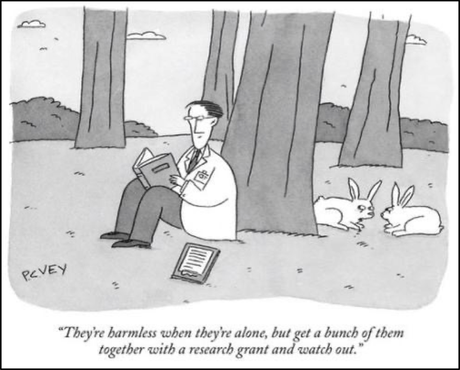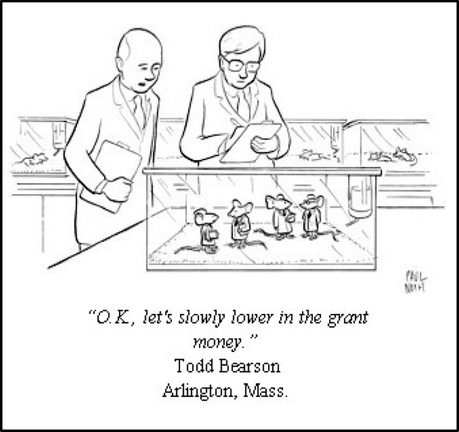Do you love doing job applications, but wish they were longer and more involved?
If so, applying for an Australian Research Council (ARC) Discovery Early Career Researcher Award (DECRA) should be right up your alley.

If, like most people, you answered a resounding NO! to that question, there are still many good reasons to apply for a DECRA. But there are also some completely valid reasons why you might not apply, so it pays to weigh up the pros and cons if you’re thinking about it.
Let’s go through some of these points, plus tips on how to make a competitive application (I just submitted a DECRA application in the last round, so it’s all painfully fresh in my memory).
What the hell is a DECRA?
The Discovery Early Career Researcher Awards offered by the Australian Research Council are highly competitive, with success rates of between 12% (ouch!) and 20% across years (but expect especially low success rates in the next round/DECRA23, given the bumper crop of applicants).
DECRAs are restricted to researchers who are (i) less than 5-years out from their PhD conferral, and (ii) who are proposing non-medical projects.
The 5-year eligibility period is based on time spent ‘research active’, to accommodate the different career pathways people follow. This means that people who haven’t been working 100% in research since completing their PhD can tally up career interruptions (which can relate to illnesses or disability, carer responsibilities, parental leave, unemployment, and employment in non-research positions) and extend their eligibility period.
So even if you are well-over 5 years post PhD (as was the case for me), you might still be eligible to apply. If you’re considering a medical science project, then you need to check out the schemes offered by the National Health and Medical Research Council (NHMRC).
Pros and Cons
Let’s start with the pros. If you get a DECRA, bloody brilliant! You get a salary for 3 years at the full-time equivalent of 1.0 (longer if you’re part-time), up to a $50,000/year research budget from the ARC, and cash support from your administering organisation (i.e., the University where you will do the research; for me that was up to $40,000/year for project costs plus salary top-up). All this PLUS you’ll be funded to do the project that you designed — living the dream!

Even if your application is unsuccessful (and let’s be honest, with such low success rates, unfortunately this is a very likely outcome for any of us), there are benefits of going through the application process, irrespective of whether you’re ‘chosen’ or not.
These benefits include:
- Networking with potential collaborators, which can lead to collaborative projects even if your DECRA is unsuccessful;
- Understanding the application process for fellowships/grants through the ARC (which is helpful for future applications);
- Developing a project proposal that can be reworked, if unsuccessful this time, e.g., you can whack it into shape for a later DECRA or Discovery grant (depending on your eligibility);
- Applying makes you set aside time to plan a large project in detail from start to hypothetical finish — an experience that can help you plan/manage your research better in the future; and
- People will help you, and you’ll get the warm-fuzzies from that.
Now the cons:
1. The application takes a long time to complete
Some people, including past DECRA recipients, will say they only spent a few weeks on their application. They’re lying. It takes months to build a strong application. MONTHS! This has implications for the progress of your other studies/work, not to mention the extra stress you take home and share with the family.
2. The process is psychologically heavy at times, for different reasons.
For example, you have to benchmark yourself in excruciating detail so you can: (i) figure out if you’ll be competitive, and (ii) convince your reviewers that you’re the cream of the crop in your cohort. But all that comparing can make you feel like you’re not doing well enough — that you’re failing (damn inbuilt negativity bias!). Also, you need critical feedback on your proposal so you can improve it. This is something that you absolutely need, but like receiving comments back on a manuscript, it’s not always easy to take.

Tips to developing a competitive application
If you’ve got a great project idea, a decent track record, and decide to go for it, then you’ll want to make your application as competitive as possible. My top tips are:
1. Push through and take the first step
Working on your application can be overwhelming at the beginning. You’ll be looking at past applications and they’ll look scarily amazing. And you’ll probably be given a tonne of documents to guide you through the application (which can make it difficult to know where to start). But like all long (long, long) journeys, this one starts with a single step. Once you get started, you can build momentum, build confidence in your ability to develop a competitive application (be gone imposter syndrome! Sort of …), and make sense of and use the guidance documents.
2. Before you nut out your project in detail, get advice from people who have been on the ARC College of Experts (general assessors) and detailed assessors for DECRAs. Then ask for feedback again once you’ve got a draft.
To be successful, your application needs to be scored highly by the detailed assessors and backed by the general assessors assigned to your application on the College of Experts. Getting input from people who have performed these roles will help improve the chances of your application passing both hurdles.
3. Feedback on your proposed project is key to success
- Get lots and lots (and lots) of people to read your application.
- Ask different people for feedback on different sections because it’s a big job to read the whole thing.
- Make sure you get feedback on all the main sections at the very least (ideally, have at least one other eye on all the sections, even the smaller ones)
- Get feedback from people that are experts in the field as well as those that know little or nothing about it — it must appeal to both groups to be successful.
- A skillful significant other is always handy to have for ongoing feedback on your application and/or moral support — although I’m not suggesting you hook up to improve your chances of getting a DECRA).
- The grant support staff in your University are essential. Figure out who knows what they’re talking about (some might be new and unsure, so experience here is key), and get their help to guide you through the process.
- You’ll get conflicting advice throughout the process so feel free to take what you agree with and ignore the rest (including my advice) — you can’t make everyone happy.
- You’ll need to benchmark against others in your field. There are some great online resources for benchmarking and developing your research performance sections here.

There are some great resources to help you develop your Research Performance section at The Grant Ed Group.
If you weigh all that up and decide to go for it, good on you! If you decide it’s not for you, no big deal, there’s plenty else to do in and outside of academia (I still have job alerts set up, just in case … see my previous blog post).
Either way, may the grant odds be forever in your favour!


